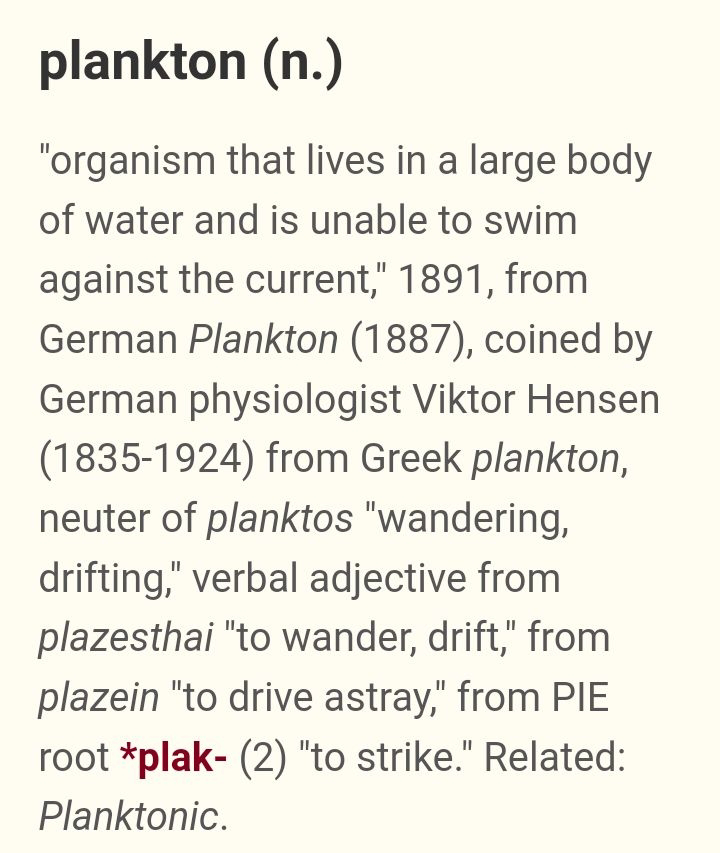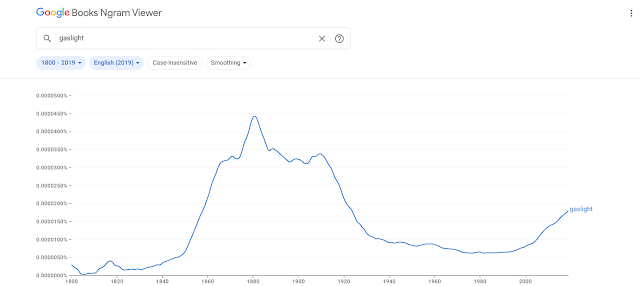This week's In Our Time was all about plankton, which – like most things when you study them deeply enough – turn out to be crucial to human survival (half the breaths we breathe are down to these little critters, to say nothing of all the food-chains they support). The programme started with a mention of where they get their name:
 | |
|
Meanwhile, in the early days of astronomy, seers noticed that whereas some heavenly bodies seemed relatively constant (stars – which we now know move about quite a bit), others seemed to wander about the sky (planets). And these took their name from that characteristic:
 |
| Etymonline |
Matters arising from my last post
<parenthesis>...)
(though I have to admit to a predilection for the old 'gerund/gerundive/present participle' terminology...<per-contra>
[but "ing-form" is easier for students, and few if any need to understand the minutiae however much fun it is for nerds like me to appreciate {"knowing the pretium (Latin for 'price', the root of 'appreciate') of everything and the value of nothing?"} the differences]
</per-contra>
</parenthesis>
...is the clincher, as it can only be a verbal usage, But as the two curves are so similar since the turn of the century, and as in the 21st century almost the only use of the noun is in describing the plot of the film it's a safe bet that they both represent the new verb
 |
| The ghost in the washing line |
Perhaps, though, this curve has a foretaste of the ghostlier sense. If you turn it through 90 degrees. it looks uncannily like someone running into a sheet:
b
PS


No comments:
Post a Comment